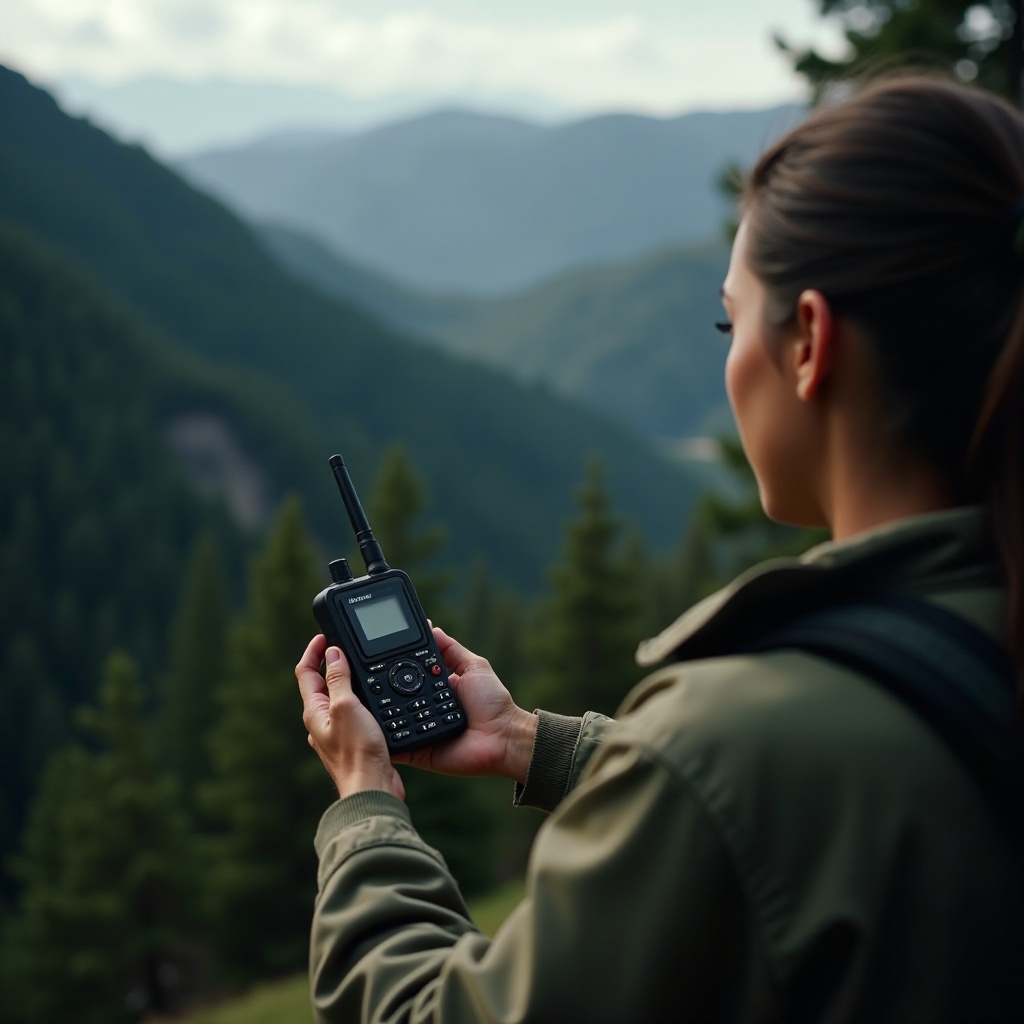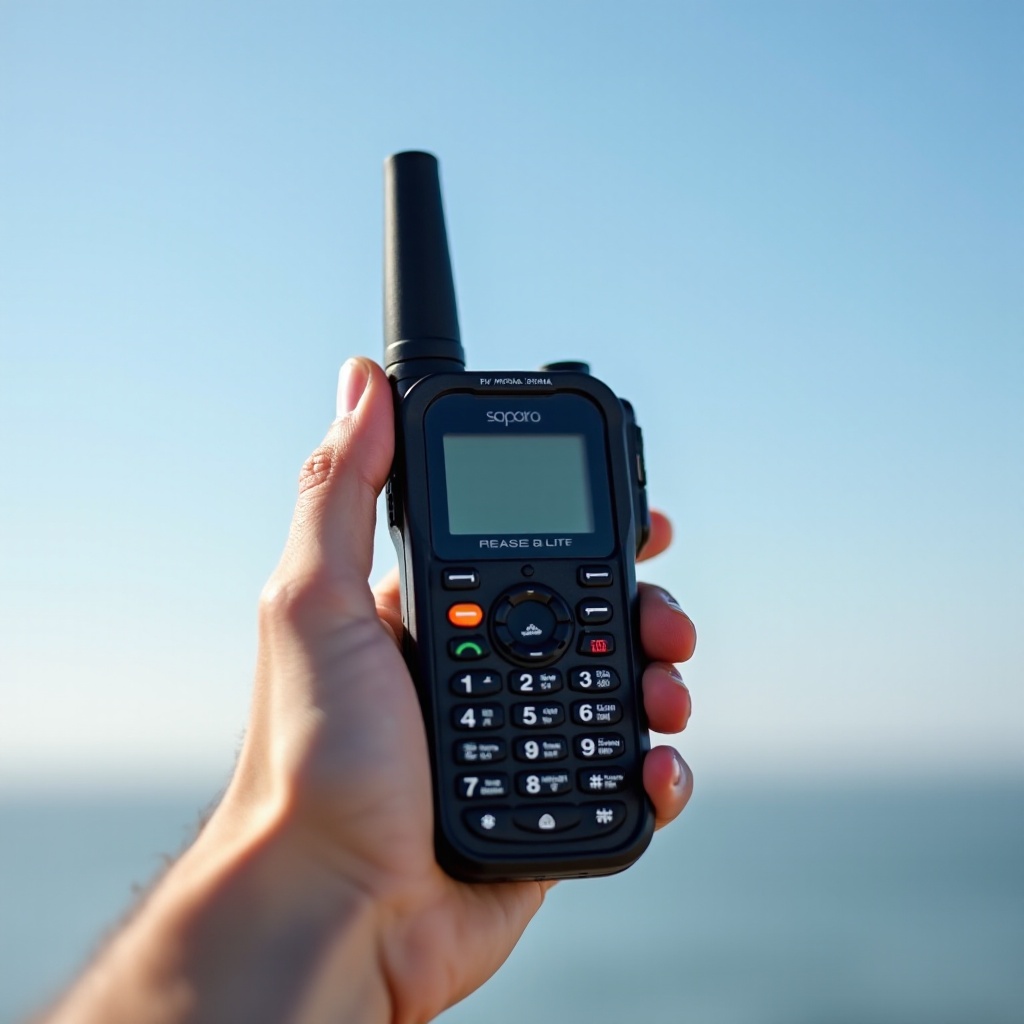Introduction
In today’s world, surveillance and tracking technologies are omnipresent, complicating efforts to maintain privacy. Whether you are a journalist, activist, or outdoor enthusiast, personal security can be compromised by these digital eyes. A satellite phone can offer a dependable way to avoid surveillance and maintain your privacy. Understanding the functionality of satellite phones and how they can safeguard your communication reveals why they are essential for anyone needing better security.

Understanding Surveillance Tactics
Before exploring how satellite phones can aid you, it is crucial to understand the tactics employed in modern surveillance. Surveillance typically involves monitoring communication lines, tracking location data, and intercepting electronic messages. Authorities and malicious entities use various technologies, such as cell-tower triangulation, GPS tracking, and malware insertion, to collect data.
Cell towers can accurately pinpoint a cellphone’s location by triangulating the device’s signal strength received at different towers. Additionally, GPS satellites provide precise geographical coordinates of a device, enabling thorough movement tracking. Intercepting phone calls and text messages can also occur through cellular networks without non-specialists noticing.
Recognizing that traditional cell phones constantly communicate with nearby towers, emitting signals that can be exploited, is vital. This vulnerability can be detrimental in situations that require utmost confidentiality. Therefore, an alternative mode of communication is desirable.
What Are Satellite Phones?
Traditional cell phones rely on ground-based towers for communication, but satellite phones operate differently. These phones utilize a network of satellites in Earth’s orbit to transmit signals, enabling constant connectivity even in remote locations where cell towers are absent.
By bypassing terrestrial networks, satellite phones reduce the risks associated with cell-tower triangulation and GPS tracking. The satellites used can be either geostationary or part of a constellation, ensuring comprehensive global coverage. This capability positions satellite phones as essential tools for avoiding surveillance in any environment.

Benefits of Satellite Phones for Avoiding Surveillance
The advantages offered by satellite phones in avoiding surveillance are manifold:
- Global Coverage: Unlike traditional cell phones, satellite phones provide connectivity in the most remote regions, free from reliance on local infrastructure.
- Enhanced Security: Signals are relayed directly to and from satellites rather than through ground-based facilities, making interception more challenging.
- Privacy Protection: Satellite phone communications are less susceptible to the same types of monitoring as traditional mobile phones.
- Battery Life: Many satellite phones are designed to have extended battery life vital for long-duration use or emergencies.
- Robust Build: Often built to withstand extreme conditions, satellite phones are durable, minimizing risks posed by harsh environments.
These benefits make satellite phones particularly valuable for professionals and individuals who prioritize privacy and need to avoid traditional surveillance methods.
Practical Tips for Using Satellite Phones to Ensure Privacy
To maximize the advantages of satellite phones, users should adopt the following practices for guaranteed privacy:
- Encrypt Communication: Where possible, use additional encryption tools to protect your calls and messages.
- Regularly Update Firmware: Ensuring your device’s firmware is up-to-date reduces vulnerabilities to new exploits.
- Avoid Storing Sensitive Information: Limit the amount of sensitive information stored on the device to minimize risk if the phone is confiscated.
- Use Disposable Numbers: Frequently change your phone number to minimize tracking.
- Secure the Device Physically: Always keep the phone within sight and use strong passcodes to protect access.
- Turn Off When Not in Use: Switch off the device when not required to eliminate unnecessary emissions that can be traced.
- Avoid Public Spaces for Critical Calls: Make crucial calls away from places likely to have surveillance cameras.
By incorporating these practices, satellite phone users can effectively bolster their privacy and communication security.

Comparing Satellite Phones to Traditional Cell Phones
Satellite phones and traditional cell phones differ significantly in their utility for avoiding surveillance:
- Network Dependency: Cell phones require a network of ground-based towers, making their signals easier to intercept. Satellite phones rely on satellite networks, making them less vulnerable.
- Location Tracking: Cell phones’ constant communication with towers can triangulate locations. Satellite phones bypass this, primarily communicating directly with satellites.
- Connectivity: In remote or off-grid locations, satellite phones excel where cell phones fail due to tower absence.
While traditional cell phones offer convenience and familiarity, satellite phones provide superior security benefits necessary for specific needs and environments.
Top Satellite Phones for Secure Communication
Numerous options are available for those prioritizing secure communication through satellite phones. Here are some top picks:
- Iridium 9555: Renowned for global coverage and robust design, making it versatile and reliable.
- Inmarsat IsatPhone 2: Known for excellent battery life and user-friendly interface.
- Thuraya X5-Touch: A hybrid android satellite phone offering dual-mode operation, versatile in satellite and terrestrial networks.
- Globalstar GSP-1700: Offers a good balance between affordability and essential features.
Choosing the right satellite phone depends on individual needs, such as geographical reach, battery life, and additional features.
Legal and Ethical Considerations
When using satellite phones to avoid surveillance, complying with local laws and regulations is vital. Certain regions may impose restrictions or require permits. Ethically, ensuring that use prioritizes safeguarding personal and professional privacy without contravening any laws is key. Awareness and adherence to legal constraints guarantee responsible and lawful use.
Conclusion
Satellite phones offer a valuable solution for those seeking to avoid surveillance. By understanding their distinctive advantages, acknowledging necessary precautions, and selecting suitable devices, users benefit from enhanced privacy and secure communication. Continual advancements in satellite technology promise further developments, solidifying satellite phones’ role in safeguarding communication privacy.
Frequently Asked Questions
Are satellite phones completely immune to surveillance?
No technology is completely immune to surveillance. However, satellite phones significantly reduce risks by bypassing conventional ground-based networks and making interception more difficult.
How do satellite phones offer more privacy compared to regular cell phones?
Satellite phones communicate directly with satellites rather than through local cell towers, making it harder for triangulation-based tracking and interception of communication.
What should I consider when choosing a satellite phone for secure communication?
Consider factors like global coverage, battery life, encryption options, durability, and user reviews to ensure the satellite phone meets your specific privacy and communication needs.